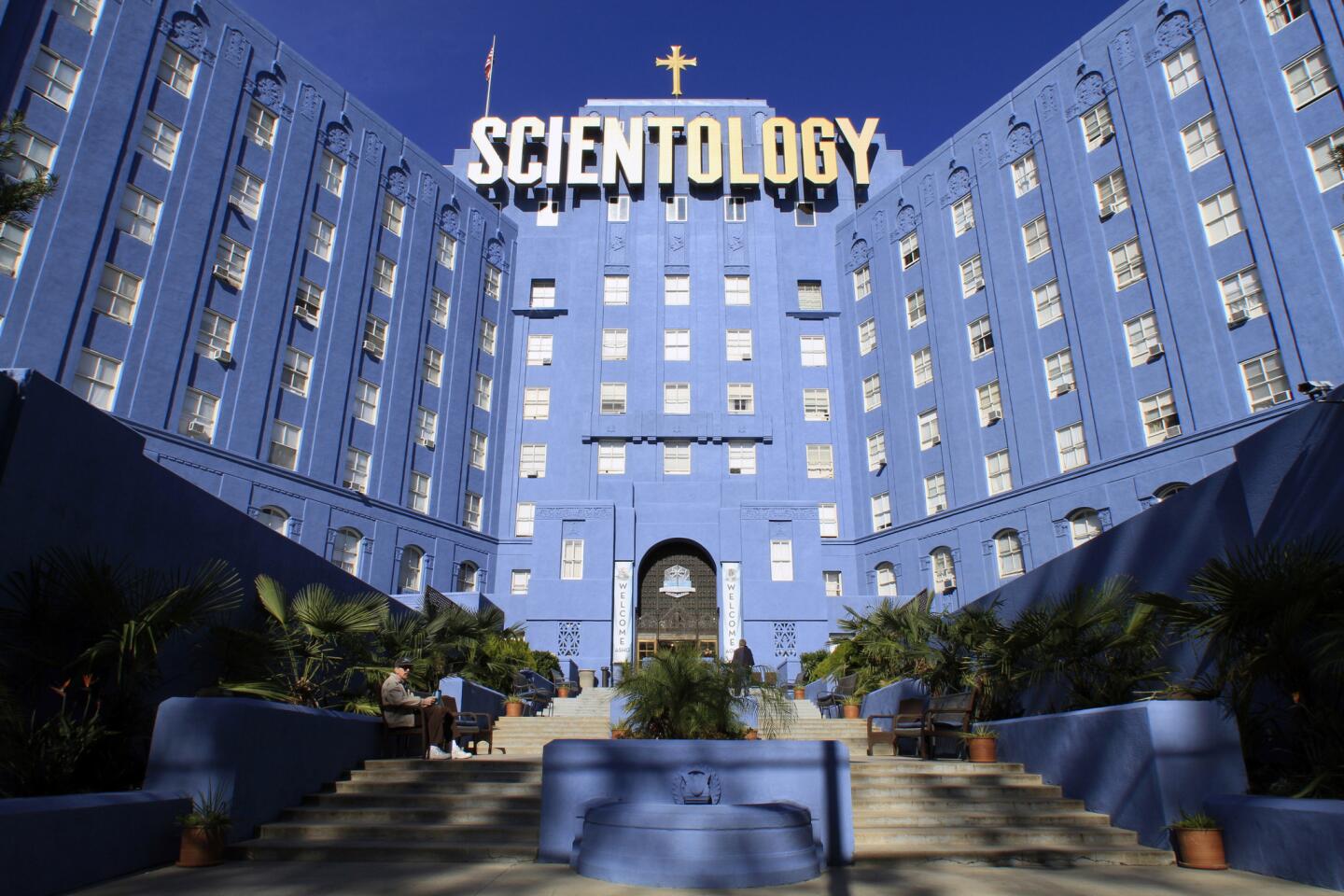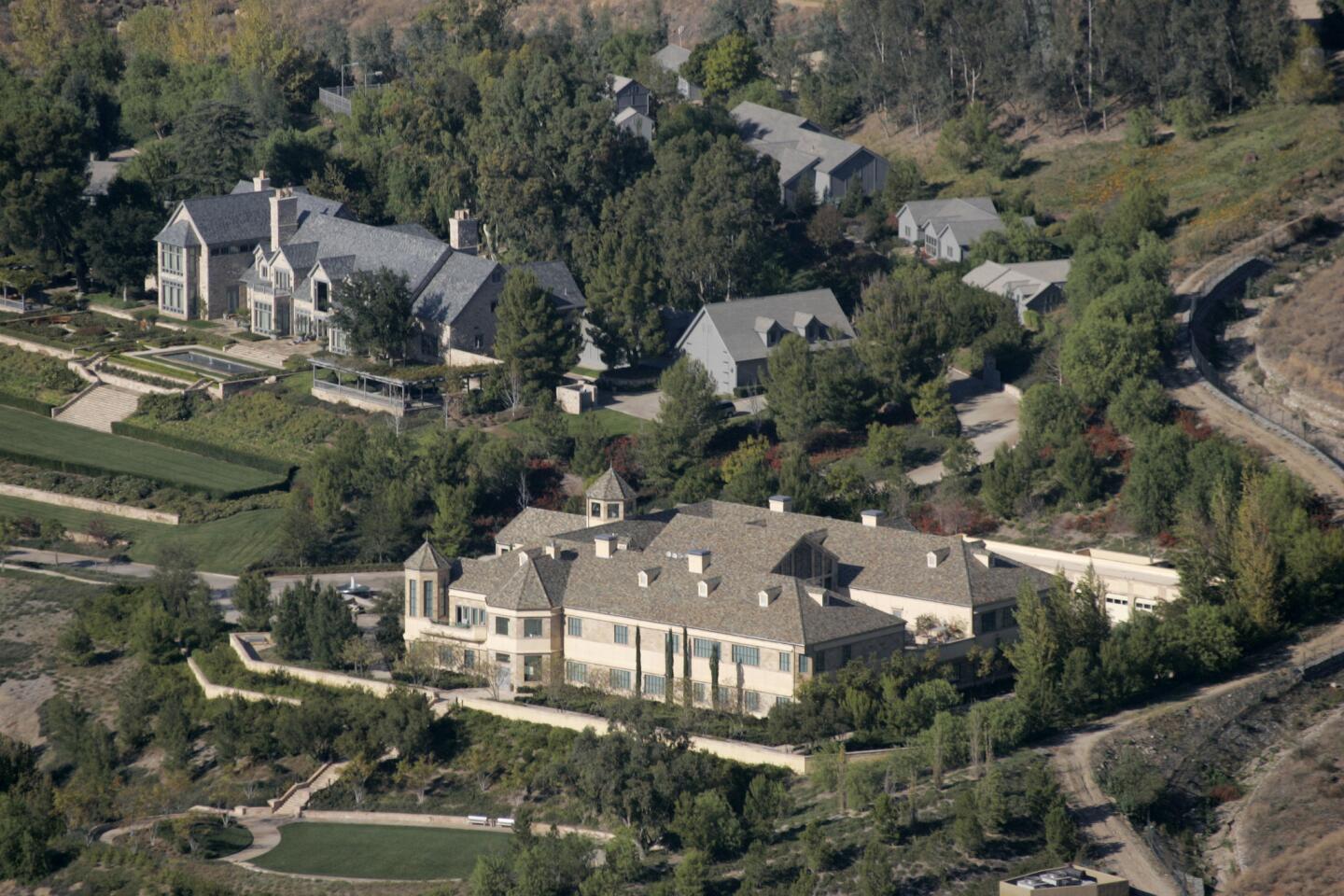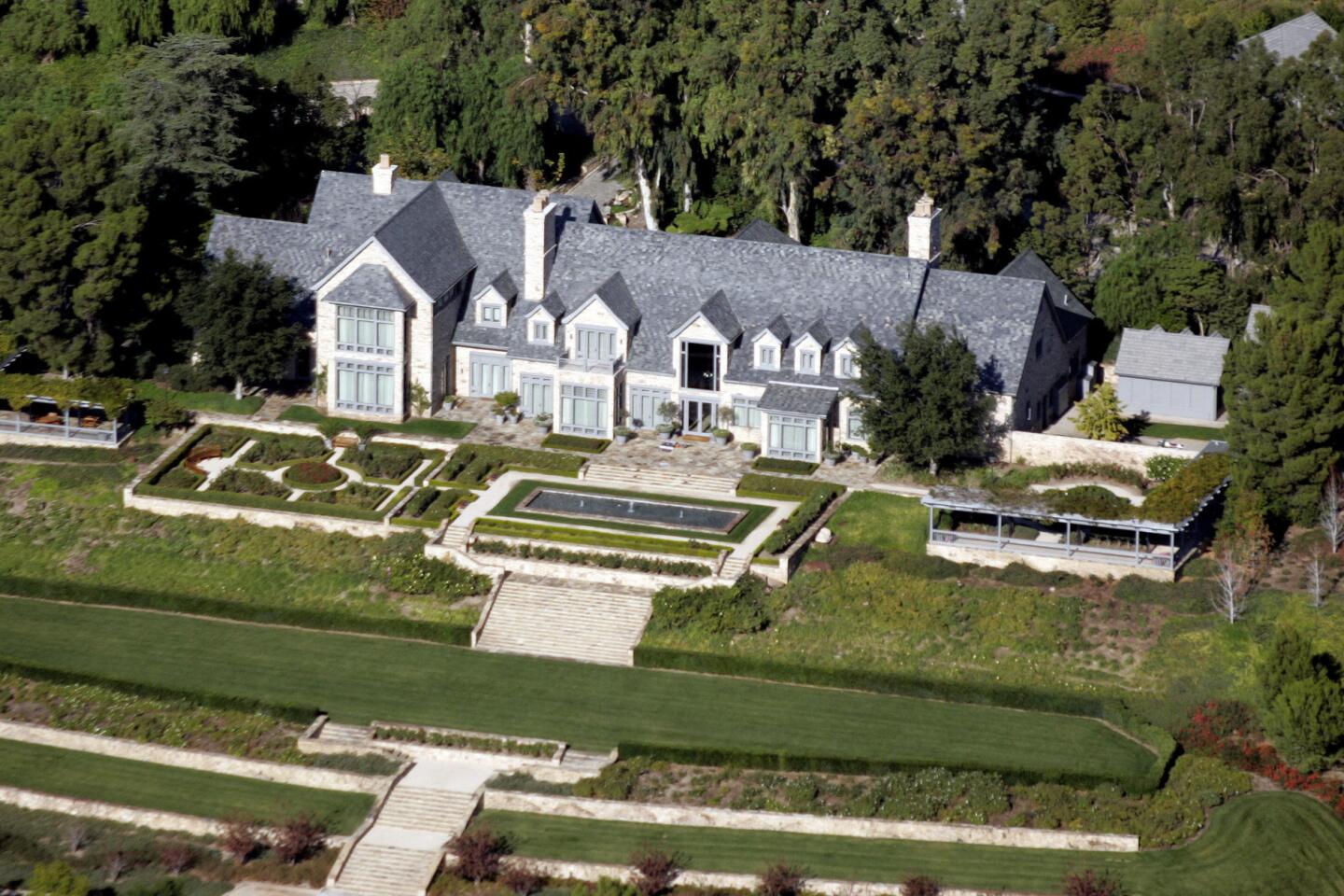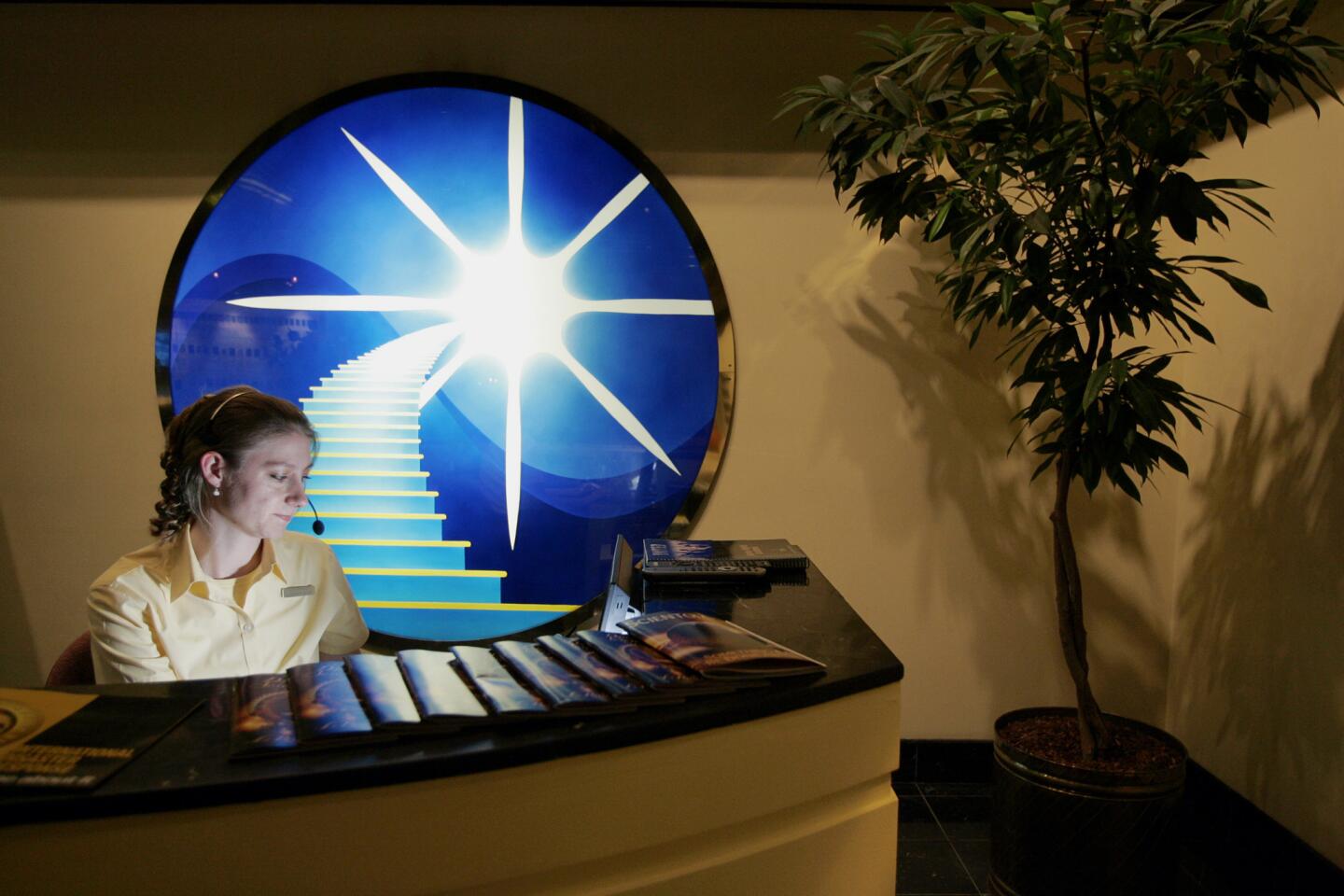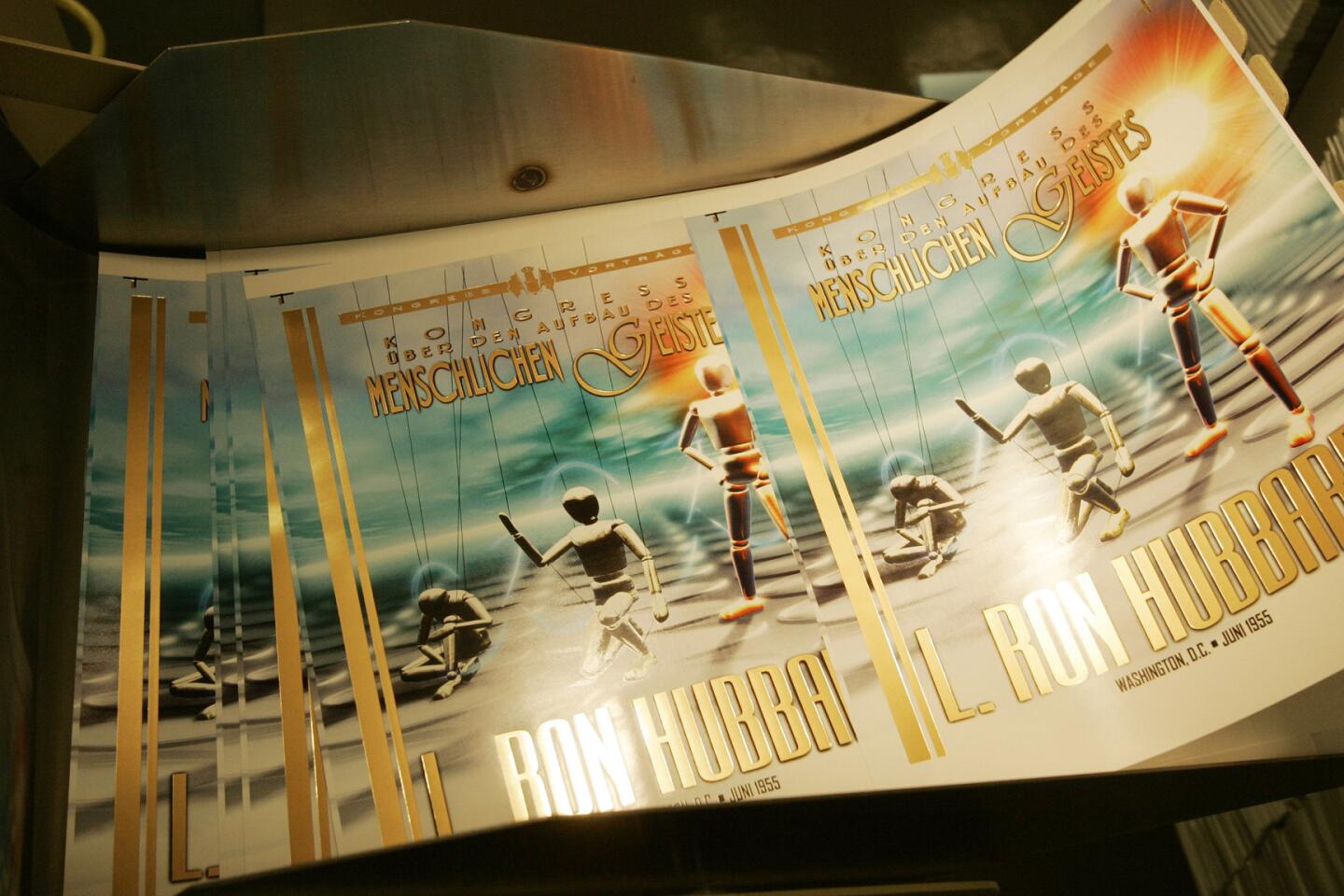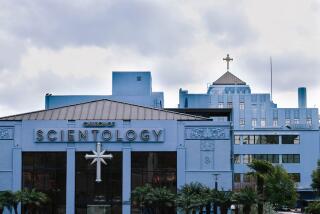The Man in Control
- Share via
The Church of Scientology today is run by a high-school dropout who grew up at the knee of the late L. Ron Hubbard and wields power with the iron-fisted approach of his mentor.
At 30, David Miscavige is chairman of the board of an organization that sits atop the bureaucratic labyrinth known as the Church of Scientology.
This organization, the Religious Technology Center, owns the trademarks that Scientology churches need to operate, including the words Scientology and Dianetics.
The Religious Technology Center licenses the churches to use the trademarks and can revoke permission if a church fails to perform properly. Therein rests much, but not all, of Miscavige’s power.
He is the man in control, charting a direction for the organization that is at once expansionist and combative -- in keeping with the dictates and personality of Hubbard, his role model. He refused repeated requests to be interviewed for this report.
Church spokesmen say Miscavige is a tireless, no-nonsense leader who works 15-hour days and whose vision is guiding the church’s foray into mainstream society.
“He has a tremendous ability to cut through bull and get to the point,” said one Scientology spokesman, who has worked closely with Miscavige.
“He’s an initiator,” said another.
High-ranking former Scientologists describe him as a ruthless infighter with a volatile temper. They say he speaks in a gritty street parlance, punctuated with expletives.
One recalled the time that Miscavige became enraged with the performances of Scientology staffers on a church record album. He propped its cover against an embankment outside his Riverside County, office and shot it repeatedly with a .45-caliber pistol, said the associate.
To the public, the Rev. Heber Jentzsch, president of the Church of Scientology International, is portrayed as Scientology’s top official. He appears regularly at news conferences and on talk shows, and was one of a group of Scientologists detained recently by Spanish officials investigating the church. In reality, Jentzsch appears to be chiefly responsible for church public relations.
The real power is consolidated among a handful of Scientologists, led by Miscavige, who keep low public profiles.
Miscavige’s climb to prominence is a lesson in the origins and nature of power in the church that Hubbard built.
At the age of 14, with the blessing of his Scientologist parents, Miscavige joined a cadre of trusted youngsters called the “Commodore’s messengers.” In the beginning, they merely ran Hubbard’s errands. But as they emerged from adolescence, Hubbard broadened their influence over even the highest-level church executives.
In time, the messengers controlled the communication lines to and from Hubbard -- a critical component of power in an organization that revered him as almost saintly. When messengers spoke, they did so with Hubbard’s authority. Bad-mouthing a messenger, Hubbard said, was tantamount to personally challenging him.
When Hubbard went into hiding in 1980, he left behind but did not forget Miscavige, one of his favorites.
It was Miscavige’s job to ensure that Hubbard’s orders, secretly relayed to him, were followed by church executives. In effect, Miscavige became the sole link between church leaders and Hubbard.
Miscavige also was put in charge of a profit-making firm called Author Services Inc., which was established in 1981 to manage Hubbard’s literary and financial affairs. The job further enhanced Miscavige’s reputation as having Hubbard’s confidence.
Church defectors say Miscavige wasted no time flexing his new muscles.
Among other things, he spearheaded a purge in 1981 of upper-echelon Scientology executives accused of subverting Hubbard’s teachings and plotting to seize control of the organization.
He also cracked down on owners of Scientology franchises, or missions, who pay the church roughly 10% of their gross income.
At a 1982 church conference, Miscavige accused the mission owners of cheating the “mother church.” He and his aides announced that “finance police” would audit the missions to ensure that the church was getting its fair share of money. And the audits would cost the missions $15,000 a day.
In taking command of Scientology after Hubbard’s death, Miscavige survived a challenge from two other Hubbard lieutenants once thought to be his likely successors: Pat and Anne Broeker, who had been in hiding with Hubbard.
The power struggle was so intense at one point that even Hubbard’s final Scientology writings, revered as sacred scriptures, became the object of a tug of war between Miscavige and Pat Broeker, according to Vicki Aznaran, a top Scientology executive who left the church in 1987 after a falling out. Aznaran said Broeker threatened to use the writings to start his own church.
Miscavige today has achieved exalted status within the Scientology movement.
He has personal aides who walk his dog, shine his shoes and run his errands, according to Aznaran, a top Scientology executive who left the church in 1987 after a falling-out. In his rare public appearances, he is surrounded by respectful subordinates.
And like Hubbard, who was frequently referred to by his initials, David Miscavige is called D.M.
More to Read
Sign up for Essential California
The most important California stories and recommendations in your inbox every morning.
You may occasionally receive promotional content from the Los Angeles Times.
